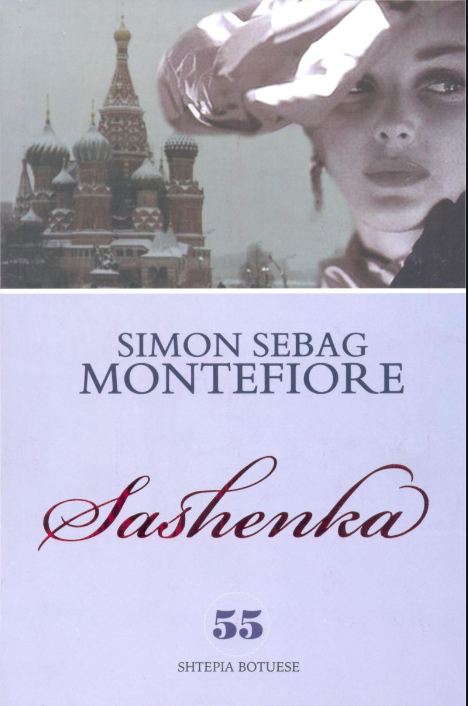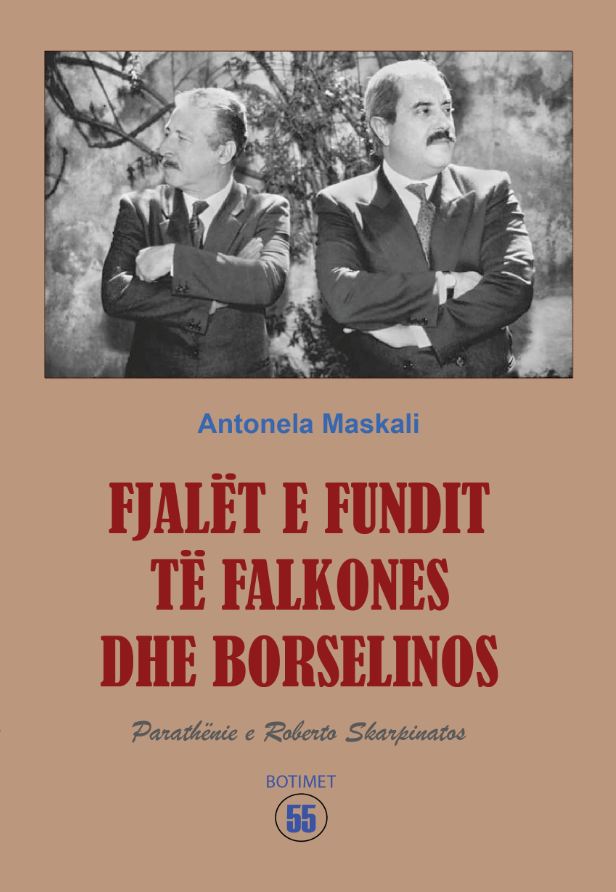"The Zagreb-Tirana axis represents a new political fact and as such is not burdened with any negative mortgages from the recent past,
has said Croatian Ambassador to Tirana Zlatko Kramaric. The Ambassador made that statement in an overview on the two subsequent visits of Albanian leaders to Croatia (the spring visit of President Bajram Begaj and the recent visit of Prime Minister Edi Rama) which, as he pointed out in an exclusive interview with Albanian Daily News, definitely confirmed the strategic partnership of the two countries.
According to the Ambassador, what happened on September 24 in the north of Kosovo was managed by Belgrade whose goal is create 'free Serbian territory' in the north of Kosovo, a territory that would later turn into a new 'Serbian republic'
"In such a situation, it is not possible to continue the dialogue between Belgrade and Pristina.
However, the international community, USA an the EU must take their share of responsibility, which means that their reaction must be both quick and unique against all those who represent a danger to world peace. History teaches us that hesitation and giving in does not solve the problem. Action must be taken - now and here!" said Kramaric.
Below full interview:
Albanian Daily News: Mr. Ambassador two important events have happened between Albania and Croatia over the last few months as the heads of state and government, Bajram Begaj and Edi Rama, respectively paid officials visits to Zagreb.
Much has been written about them and Albanian
Daily News covered the events extensively, but please could you share with our readers some details of the talks between the leaders of the two
'strategic partners' as you, Zagreb's top diplomatic envoy in Tirana, took part in the two major events?
Croatian Ambassador Zlatko Kramaric: There is no doubt that these two subsequent visits of Albanian leaders to Croatia (the spring visit of President Begaj and the recent visit of Prime Minister Rama) definitely confirmed the strategic partnership of our countries! Namely, Albania is aware of the importance of Croatia on its European path (Croatia is a promoter of Albanian politica! and economic interests, and on the other hand, I Croatia and Albania represent a new political- military axis in this part of Europe - these two countries can guarantee stability and security of the region. The Zagreb-Tirana axis represents a new political fact and as such is not burdened with any negative mortgages from the recent past.
Furthermore, this axis combines several important geopolitical components - Mediterranean, Central European, and Balkan! If we were to compare this axis with the Open Balkans project, we would see how much more inclusive it is, wider and as such more promising. Simply, it is more alive, more European…., closer to the expectations of the Albanian citizens.
-President Begaj accompanied by his host
Milanovic visited the Arbanasi community of Zadar and both presidents praised their contribution for more than three centuries to the strengthening and diversifying the ties between Albanian and Croatian people. Arbanasi citizens are happy with their life in Croatia and Croatians treat them as part and parcel of the country's society in all aspects. Mr. Ambassador, I refer to this aspect at a time when the question of minorities in the WB continues to be a bone of contention between regional countries. First, which is the key to such a healthy coexistence and secondly, could such a case be an ample example to be applied by other regional people, of course, taking into consideration the relevant concret circumstances of each country?
-I fully agree with your statement that the Zadar Arbanasi are a paradigmatic example of successful coexistence between the majority nation and the minority community. The majority not only fully respects all the individual and collective rights of the minority community in their everyday life, but also realizes all these rights in practice. In this way, Arbanasi managed to preserve their identity, their language, their traditions, awareness of their uniqueness, and on the other hand, they have actively participated in Croatian political, cultural, religious, economic, sports... life. Their mark on the social and political life of Croatia is very visible. No one can ignore that trace, and it represents one of the most beautiful proofs of Croatian diversity. Of course, as such it can represent an example that other countries in the Western Balkans should follow. A well-known Jewish philosopher Yuval Noah Harari thinks in a similar way, who believes that the relationship between Jews and Palestinians must change dramatically if true peace is to be achieved in the Middle East.
-The visit of PM Rama took place after the 24 September act of aggression of Serbian armed gangs against Kosovo police, which risked turning into an armed 'operation' by Serbia as Belgrade's leaders threatened. Both leaders of Albania and Zagreb condemned the act and
reiterated their unwavering stance in cunnert of 11:42
(33
the sovereignty and integrity of Kosovo. Please what could have been behind the 24 Sept armed scheme when Serbs have made the establishment of the Association of the Serb community in North Kosovo according to their guidelines as the main prerequisite in the Pristina-Belgrade dialogue? To be straightforward, Mr.
Ambassador, do all Serb actions hint that the creation of 'Republika Srpska' in North of Kosovo is their ultimate target?
- About what happened on September 24 of this year in the north of Kosovo, we are still not moving forward. This was not an ordinary, isolated incident, which was allegedly invented by a one certain man - Milan Radoicic, the vice-president of a Serbian political party operating in Kosovo, which is openly supported by Belgrade and Vucic to be more precisely. That party is not selfish at all in its actions. That party is managed from Belgrade. And precisely by orders from Belgrade, at the end of the extended period, the Serbs left all Kosovo institutions (local self-government, police, judiciary, parliament...), did not participate in the last local elections. Therefore, Belgrade is obliged to all of us to answer some important questions:
what was the real motive to make such an unreasonable decision, which then generated a whole series of negative consequences, from increasing inter-ethnic tension, up to attempts use violence/weapons to change the borders 11:43
we .. wrap vase on wannange .
Kosovo. It also seems to us that Radoicic, with the full logistical/military assistance of Belgrade, tries to create 'free Serbian territory' in the north of Kosovo, a territory that would later turn into a new
'Serbian republic' There is no doubt that the plan was to create territorial-political assumptions to divide Kosovo in the foreseeable future.
Radoicic tried to be both Arkan and Dodik at the same time! What is tragic is that official Belgrade is behind the behavior of such an obscure character - although he is guilty/responsible of the death of many people the court released him. Also with his insane action he worsened the situation not only in Kosovo, but also in the entire region... In such a situation, it is not possible to continue the dialogue between Belgrade and Pristina. However, the international community, USA and the EU must take their share of responsibility, which means that their reaction must be both quick and unique against all those who represent a danger to world peace. History teaches us that hesitation and giving in does not solve the problem. Action must be taken - now and here!
-Against the backdrop of all that has happened and the ensuing events, what do you think of the two-decade EU format for Pristina-Belgrade dialogue, and the current attitude of Brussels as well as the US towards the approaches of Prist a and Belgrade? As a follow up do you think that a 'return' to an international conference is plausible?
- It seems to me that it is high time for the EU to redefine its attitude not only towards the Kosovo crisis but also towards all crises in the world.
Recently, an American-Austrian journalist Matthew Karnitschnig clearly showed all the confusion of the EU (in one day we could read three completely different opinions about the same problem, the attitude towards the terrorist act of Hamas, so that it is inadmissible and undoubtedly witnesses to the non-existence of unique EU-political-economic strategies). Therefore it is not at all unusual that Vucic has been managing to
'deceive' the international community for years, sitting on several chairs. His explanation that he did not sign any document at recent conference in Ohrid because his hand was hurting is extremely cynical. That story may be acceptable in part of the Serbian public, but it is not clear to us that such a statement can be tolerated by serious European politicians.
Of course, this problem will have to be solved at one of the international conferences; but it does not matter which political premises will be dominant at that conference. We believe that the dominant premise cannot be a premise based on
"symmetry of guilt".
After what happened on 24th of September 11:43
1 63
everything is clear, masks have fallen, emperor Vucic is naked. I want to believe that it is now clear to everyone (including even those EU countries that have not yet recognized Kosovo) what this is really about.
- As we are having this interview the Israeli-Palestinian conflict has escalated into a bloody war unseen for decades. According to your opinion and experience as one of leaders in the Croatian War of Independence fought from 1991 to 1995 between Croat forces loyal to the Government of Croatia, which had declared independence from the Socialist Federal Republic of Yugoslavia, and the Serb-controlled Yugoslav People's Army and local Serb forces, which might be the solution to end the Palestinian-Israel conflict because time is witness to the 'hole getting deeper?
- It took a full 30 years from the signing of the Oslo Accords (1993) to make sure that the (Palestinian) philosopher Edward Said was right and not the Israeli and Palestinian politicians of the time.
Namely, Said, at that time already wrote that the Agreement by which the Palestinians received autonomy in the Gaza Strip and the West Bank was supposed to be a prelude to the formation of the state of Palestine where that state would be formed when an agreement is reached about Jewish settlements in the occupied territory and East Jerusalem; such agreement is impossible and 11:44
unattainable in real life.
8 63
Even at that time it was already clear to Said that these questions, in the way the questions were asked (what belongs to whom) cannot be solved.
Said was not satisfied with the two-state solution and believed that the idea of two states could not be realized in reality. Therefore, he proposed the formation of one state with two nations (this would also be our possible proposal for solving the crisis in Kosovo), because he was aware that both Jews and Palestinians claim the same territory and that that territory it is not possible to divide just like that. And what is left after that? Experience teaches us that after that we will have an eternal war until extermination! But we must also be aware that the very concept of one territory exclusively for one nation is both wrong and dangerous. The latest events undoubtedly confirm this in the most tragic and painful way.
Therefore, we have to agree with the opinion of Yuval Noah Harari, who believes that politics very often functions as a scientific experiment, which is carried out on millions of people often without any ethical restrictions. Thus, the Israeli-Palestinian conflict has been going on for years through both noble trials and catastrophic mistakes, such as Hamas's terrorist campaigns and the brutal responses of the state of Israel!
-Mr. Ambassador, the Ukraine war is in its 19th 11:44
month, the Israeli- Palestinian conflict has revived, turning into a bloody war, while there are many ongoing or dormant conflicts between countries in different regions of the world (about
46). Against such a backdrop of the highest number of violent conflicts since the Second World War and a consequent, pervasive sense of insecurity, what is the future of the world, peace and security against these complex challenges?
-You are right about all these conflicts in the world, Russia's aggression against Ukraine, terrorism in the Middle East, the situation in the north of Kosovo, Dodik's constant threats of secession, the military conflict between Armenia and Azerbaijan, North Korea's nuclear policy,
China's attitude towards the existence of Taiwan... create a feeling of complete uncertainty in today's globalized world. Today, all these conflicts are "hot" and it is impossible to predict what will happen tomorrow, all options are open. I am not too optimistic about the future. It is obvious that many powerful people are satisfied with this kind of uncertainty in today's world. Therefore, it is very important that today we are on the right side of history and that we have a balanced/just attitude towards all events in the world: doing evil can never be justified by the fact that someone once did evil to us! Therefore, it is necessary to break this spiral of evil.
-The last. but not the least. Mr. Kramaric. let me 11:45
1 a 63
touch upon the upcoming Summit of the Berlin Process to be held in Tirana on October 16. Some ministerial meetings and other activities related to the Summit have been held over the last weeks.
As a top diplomatic envoy to Tirana of Croatia, one of the main promoters of the Berlin Process, what are your expectations of the event regarding the EU perspective of the WB and the security and development in peace of the people's region?
-I'm not one of those who think they can predict the future. And it is even more difficult to assess the development of political processes than predicting the future. This especially applies to the processes in these Balkan areas. The only thing that is certain is that nothing is certain.
Furthermore, the content of these processes is not decided only by the Balkan states. Most often, throughout history, these countries are not the ones who decide on their own destiny. Therefore, it would be very important that these countries, as much as possible, accept the rules of behavior of Western European countries, where 'democracy is the only game in society/city'! In this context, the format of the Berlin process guarantees that it is achievable. I am not in favor of that approach that does not honor individual successes. Because, if individual members (Serbia...) does not fulfill its obligations (individual sensitive chapters), this does not mean that other WB countries have to + wait because of that, which means that they will be
muniched hamamen anmanna dann nat flall thain 11:46
2
Therefore, it is extremely important to honor those countries that are truly committed to the EU agenda. I am convinced that Albania is on the right track and that it deserves, precisely because of the situation in the world, that its accession to the EU should be accelerated as much as possible. I would like that to be one of the conclusions of this meeting in Tirana.
And the leaders of the EU must think about what will happen if this process of accession of the countries of the Western Balkans lasts too long. I'm afraid that in that case the alternatives are not great. Peace has no alternative! And we are all aware that there are too many crises in the world today. The end of history can be much more apocalyptic than any of us can imagine. It will not be the 'end of history' in the way the American philosopher F. Fukuyama envisioned that end.
Finally, isn't Putin threatening to use nuclear weapons?! It is not pleasant to live in such atmosphere. None of us has the right to be the master of life and death on this only planet of ours.
Tirana-Zagreb, a new Political-Military Axis
Saturday, 21 October 2023 11:41
Më shumë në këtë kategori
« Sot mbushen dy javë që kur Hamasi bëri masakrën në jug të Izraelit
‘Dita më e vështirë për Serbinë’/ Vuçiç bën viktimën para takimit me ‘të mëdhenjtë’: Nuk fle natën »
Login to post comments
Lajmet e fundit

'Rinia iku, kryehajduti godet pensionistët', Hajderasi: Ku e gjeni buxhetin për kupolën tuaj kriminale?
Nga Rruga e Shpresës, në tubimin qytetar, anëtarja e FRPD, Alda Hajderasi tha se Edi Rama, pasi largoi rininë, ka filluar të godasë ata që kanë ngelur, pensionistët. SPAK pse nuk...

'Takimi me shqiptarët në Londër', Lela: Atdheu që keni lënë, nuk është ai që Edi Rama dhe Taulant Balla ju paraqesin
Shqiptarët që jetojnë në Britaninë e Madhe i janë përgjigjur masivisht ftesës së bërë nga kryetari i PD-së, Sali Berisha për një takim në Londër. Drejtori i komunikimit në PD, Alfred...

Erion Veliaj e ka realizuar planin 9-mujor të gjobave të qarkullimit në masën 234%!
Nga Ilda Zhulali: Erion Veliaj e ka realizuar planin 9-mujor të gjobave të qarkullimit në masën 234%! Ndërsa planin e gjobave të tjera, në masën 188%! Sa më pak vende parkimi...

















